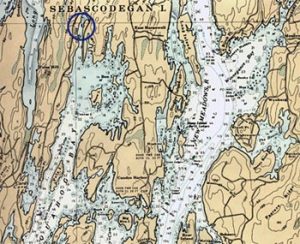“What’s your hourly service rate?” This is probably the most common question we’re asked when people are considering our boatyard. And why not? This is the single measurement that every yard can quote in an instant. Unfortunately, the hourly service rate is only one of three critical variables in the value equation. The other two are productivity and quality.
We’ll define “productivity” as how much work actually gets completed during that hour for which you just paid. A 10% improvement in crew productivity drives a $620 savings in a 100-hour job. That’s huge! Unfortunately, it’s very difficult to measure productivity in a boatyard because every boat and almost every task is unique. After nine years here we have a pretty good understanding of the factors that undermine productivity. These are a few actions that we take to be a productive and efficient boatyard:
- Organize the shops so that the crew can quickly find the tool or part needed…and maintain this organization.
- Define a list of tasks for each employee to complete each week. Our crew can quickly shift to another task if delayed by parts or questions.
- Set time targets for each project task and frequently review actual time against these targets.
- Establish and maintain minimum inventory levels for commonly used parts in each area such as fittings, sealants, wood, electrical components, abrasives, etc.
- “Engineer” the job in advance and don’t get on the boat until the work plan and the parts are on hand.
Measuring boatyard “quality” is even more difficult than productivity. Many aspects of our craft are closer to art than science, and each customer has his or her own definition of a job well done. We think that our customers would agree on a definition that includes: 1) the reliability of the systems we install; 2) the perfection of the finishes we apply; and 3) the integrity of the repairs that we complete. A few of the important actions we take to ensure that a quality job is performed are:
- Follow and comply with ABYC and NMEA standards.
- Control our Commissioning and Decommissioning Services with signed procedures that are updated, as a group, after each season.
- Train newer crew members using a formal OJT program which allows young crew members to assist experienced members without billing time.
- Discuss repair techniques and products used in frequent, even continuous, group forums.
- Train our crew in formal, off-site classes – 7 to 10 annually.
We believe that quality workmanship is the foundation for our growth and success. We consistently communicate that quality is a higher priority to us, as owners, than schedule or job profitability. Every member on the crew knows that we will re-perform any task, at our cost, if the employee, Steve, or the customer is not completely satisfied.
The bottom line: hourly rate is important, but understanding what you get in that hour is even more important.
Steve and Stephanie Rowe






Leave a Reply